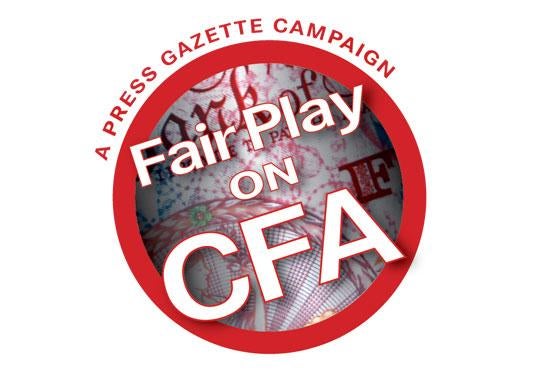
Lord Chief Justice Judge today predicted that there will be legislation on Conditional Fee Agreements in libel cases admitting that they gag publishers.
Saying that many journalists originally welcomed the access to justice no win, no fee reforms he also said: “The end result is miles away from what anybody anticipated.”
Speaking at the Society of Editors conference he said: “Before CFAs there was no legal aid in defamation cases. The playing field was level for both sides.
“I do not know what Lord Justice Jackson’s report [into defamation] will recommend…I don’t know either what the MoJ [Ministry of Justice] pilot currently running will produce by way of evidence.
“What I can say though is that a system by which one side carries no potential burden for the costs while the other carries the burden of its own costs, the other side’s costs, the success fee and indeed the after event insurance appears a little like the old Yeovil Town football pitch which was on a steep slope, with one side playing uphill for both halves of the match.
“The pressures to settle when you don’t think it right to settle to avoid the huge costs themselves have a gagging effect in relation to the media.
“There will ultimately have to be legislation about this…And it will have to achieve a structure which enables citizens without any access to funds with a genuine claim for redress to bring it to court.”
Judge also re-iterated his commitment to open justice, urging reporters to use the free guide to reporting restrictions in the criminal courts, publishd last month which is available from the Society of Editors.
He said: “The administration of justice in the courts should be open to the kind of independent scrutiny that the press provides. You have the right to be present in court unless the right has been expressly taken away. Your right to be in court is no less than the lawyers, the advocates,even the judge.
“It is a right, it is not a lesser right, nor a greater right. You are not perfoming the same function as the judge but you have a valued function to perform…
“We really cannot have people being locked up by a process which has not been open to the sort of scrutiny that your presence in court can provide…
“That book has authority behind it, you don’t have to go to expensive counsel. There is no reason why your reporter if he is there cannot quietly stand up and draw the attention of the magistrate or the judge to the passages in the book.”
Judge also spoke out about the so-called super injunction which stopped The Guardian from reporting the activities of oil company Trafigura, and from even reporting that the injunction existed.
He said: “Why do we suddenly invent names? This super injunction has been in existence for years. It all started to deal with the case where your claim was against a defendant who was defrauding you with others so that if he were able to tell the others there’s been an injunction against me they would disappear with the loot.
“That’s quite different from the kind of super injunction that was gaining publicity some weeks ago…”
Saying that such an injunction could not affect the reporting of any matter in parliament, he said: “One of the fundamental principles of our constitution is that the affairs of parliament are free, members of parliament can discuss anything they like.”
Email pged@pressgazette.co.uk to point out mistakes, provide story tips or send in a letter for publication on our "Letters Page" blog

